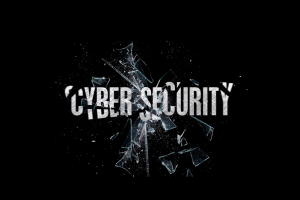How the demands of evaluation have changed & how the SOC audit meets the new-found need 
Internal auditing is more important now than ever before. And it isn’t just about protecting the bottom line anymore. Stakeholders and employees, alike, value a stronger sense of transparency with the organizations they represent. Without proof of examination, your business may turn away much-needed investors and talented employees. Don’t wait around for hackers to become smarter. Maximize efficiency, security and confidence with a more comprehensive and intensive internal audit.
Existential Review: The Ever-Increasing Importance of Internal Auditing
From ancestral agribusinesses to budding technology startups, in-house audits have been a part of normal business operations since the dawning of time. Of course one would want to be sure they meet compliance needs and established regulations. These were great for minimizing waste and ensuring you wouldn’t be met with a fat compliance penalty. Internal audits became routine happenings. An annual check-box. A simple kick of the tires, head nod, handshake and movement forward. But now, organizations in both the private and public sectors have begun calling on more skillful auditors and stronger internal review on both daily operations and overall strategy. Why? Organizations are being more critical of their own operations. They are more proactive about highlighting areas of common concern and alleviating all doubt.
Once again…why?
Confidence & Accountability: The Rise of the SOC Audit
2016 saw its fair share of information and data breaches. So much so that investors have become skittish and, to a point, paranoid about where they put their money. On a B2C level, potential clients are becoming increasingly more critical about what they do with their funds and how they store their sensitive information. Customers and high-level stakeholders need proof of accountability. They need to know you did your due diligence when it comes to fail-safing the organization.
Enter the seemingly-perfect solution: the SOC audit. Defined as a “report on operational controls at a service organization which are relevant to user entities’ internal control over financial reporting,” this document serves as hard evidence that your organization is efficient, transparent and proactive with its security measures. SOC reports also account for technology advancements that the previous SAS 70 Control Standard wasn’t designed to include. As cyber-security becomes increasingly more important, the SOC audit will continue to slip into its role as the quintessential constituent of institutional corroboration.
In-Demand Investigation: Industries Most Susceptible to Data Breaches in 2016 & 2017
- Medical practices of all sizes
- Loan servicing companies
- Hospice care organizations
- Banks, trusts and other investment firms
- Payroll service providers
- Co-Location service providers & data centers
- ACH processors
- TSPs, ASPs & SaaS providers
For more information regarding internal audits, SOC reports and other organization evaluation resources, get in touch with professionals at Holbrook & Manter today.
